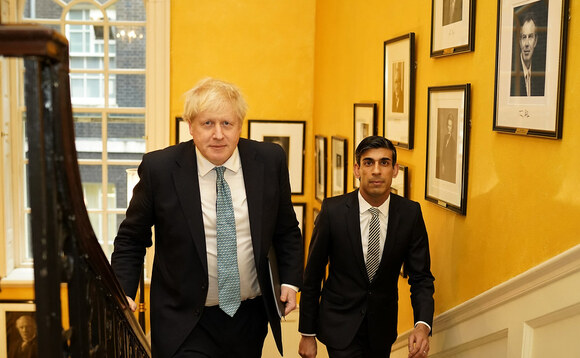Defying Europe once again, Belarus plugs Astravets nuclear power plant into national grid
November 4, 2020
Craig Turp-Balazs

Craig Turp-Balazs
Impervious to international safety concerns, Belarus starts up its first nuclear power plant.
“Cynical ignorance” is how Lithuania’s foreign minister, Linas Linkevicius, described the news that a nuclear power plant in neighbouring Belarus had been put into operation on November 3.
The plant, at Astravets, which is less than 50 kilometres from the Lithuanian capital Vilnius, was connected to Belarus’ national grid just after midday, according to according to Belarusian electricity operator Belenergo. Lithuania, which has long been critical of safety standards at the Russian-built Astravets plant, responded by cutting off the import of electricity from Belarus just minutes later.
Latvia said it had also blocked imports of energy generated at the plant and vowed not to purchase Russian electricity if Moscow was unable to prove imports did not originate from the Belarusian plant.
Lithuania’s president, Gitanas Nausėda, called on the European Union to react “immediately” by closing the bloc’s entire energy market to what he called “unsafely produced” electricity from Astravets.
Russia’s state nuclear corporation Rosatom, which built the plant, has rejected the Lithuanian claims that Astravets is unsafe, saying the design conforms to the highest international standards as confirmed by the International Atomic Energy Agency, a UN watchdog.
Rosatom also insists that it “has a zero-tolerance policy on corruption and an internal control system that ensures that any illegal or inappropriate practices are stopped and prosecuted.” It argued that the project’s launch would help reduce the region’s carbon emissions by up to 10 million tons of CO2 equivalent every year.
“We are working closely with Belarus’s national nuclear regulator, the World Association of Nuclear Operators, and with the EU’s European Nuclear Safety Regulators Group to make absolutely certain that there are no unaddressed risks or ‘threats to safety,’” Rosatom said in a statement issued to The Associated Press news agency. When fully operational in 2022, the nuclear plant’s two reactors are expected to produce up to 2,400 megawatts of electricity.
Rebecca Harms, a former MEP and outspoken critic of nuclear power, says that the plant did not pass the EU stress test, carried out in 2018, and that “some technical deficits are severe and cannot have been eliminated since then”.
However, in a statement for Emerging Europe, Rosatom says that Harms’ claims are not supported by evidence.
“On the contrary, the European Nuclear Safety Regulators Group’s (ENSREG) peer-review has given the tests an ‘overall positive’ mark and provided the Belarusian regulator with recommendations to be included in the National Action Plan (NIA). ENSREG gives similar recommendations to all EU member states’ nuclear regulators. NIAs usually take from three to ten years to implement and the implementation of the NIA is not a condition on which licensing and operations of nuclear power plants in respective countries normally depend,” read the statement, which added, “It is also worth to note that Belarus voluntarily agreed to conduct EU nuclear safety ‘stress-tests’ and get the results peer-reviewed by the EU nuclear safety body, ENSREG, although as it was not part of the EU it didn’t have an obligation to do so.”
Latvian energy minister, Žygimantas Vaičiūnas, believes that Astravets could become a “bad” precedent for ignoring the recommendations of EU experts, while also discrediting international cooperation on nuclear safety issues.
“By commissioning the nuclear power plant without implementing the EU’s stress test recommendations, the EU’s political leadership in the region could be undermined,” he said in a call for the EU to get tough with Belarus in October.
Lithuania, which closed its own nuclear power plant at Ignalina in 2009, has already been preparing for a potential disaster at Astravets, buying millions of iodine tablets in the event of a radiation leak.
Belarus itself suffered severe damage from the 1986 Chernobyl nuclear disaster, which spewed radioactive fallout from a plant in then Soviet Ukraine across large areas of Europe.
Belarusian dictator Alexander Lukashenko, who by any objective measure lost a presidential election in August, has been eager to start up Astravets before November 7, the anniversary of the Russian Revolution and a national holiday, in order to distract attention from the widespread protests against his regime that have taken place ever since the rigged election.
At the weekend, Belarus opposition leader Svetlana Tikhanovskaya called on the EU to step up sanctions against the regime.
The EU last month imposed sanctions on around 40 individuals linked to Lukashenko, but she said Brussels needed to go further and target “people and companies supporting him”.
“This help is needed now. And if European countries, and all the countries supporting our movement, could move faster in their decisions, that would be wonderful,” she said.
Lithuania – and the other Baltic states – will meanwhile be hoping for a quick decision on a bloc-wide ban on the purchase of electricity from Astravets.












